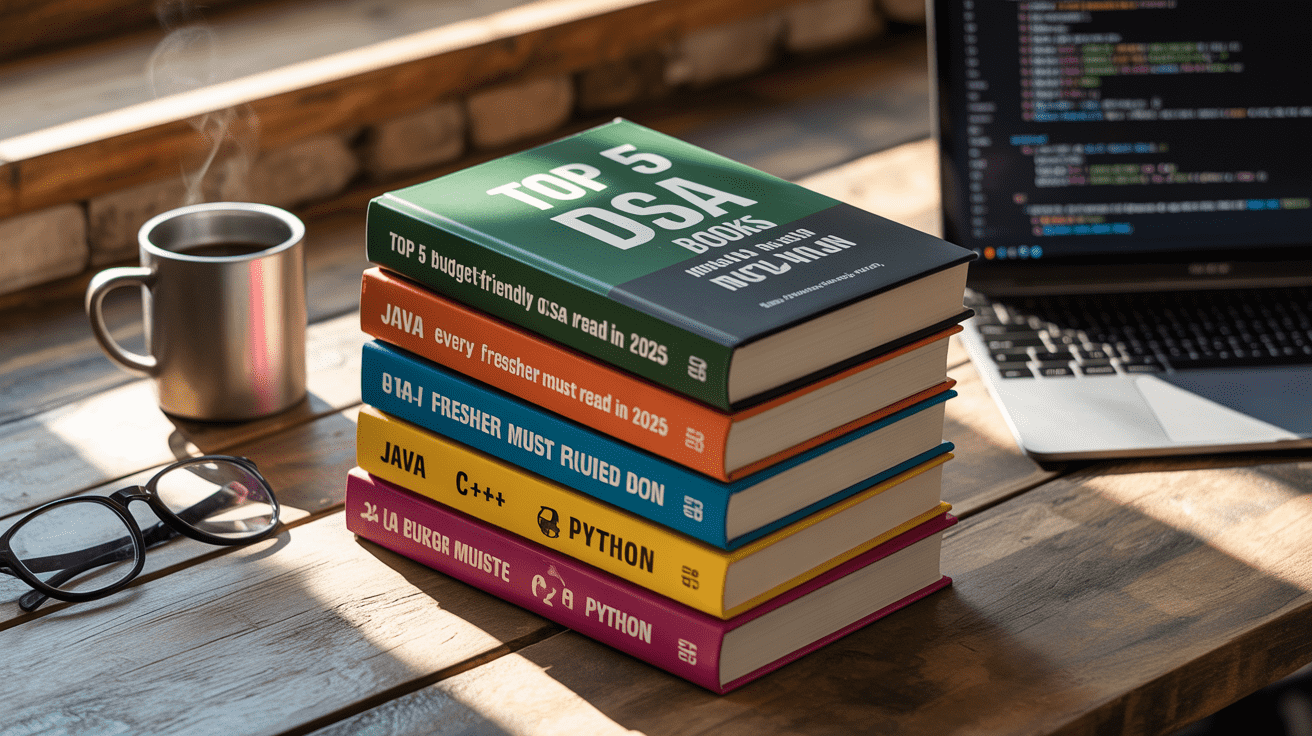If you’re a student preparing for coding interviews or placements, choosing the right Data Structures and Algorithms (DSA) book can make a huge difference. A well-structured book simplifies complex concepts, strengthens problem-solving skills, and prepares you for real-world coding challenges.
To save you time and confusion, we’ve shortlisted five affordable DSA books under ₹1000 that are beginner-friendly and widely recommended by software engineers.
1. Data Structures and Algorithms Made Easy – Narasimha Karumanchi
Why this book?
This book is perfect for freshers who want to build a strong foundation in DSA. It explains concepts in a simple way and includes hundreds of coding problems commonly asked in interviews.
Key Highlights:
- Beginner-friendly explanations
- Covers stacks, queues, trees, graphs, and dynamic programming
- Coding problems with solutions
2. Grokking Algorithms – Aditya Bhargava
Why this book?
If you’re a visual learner, this book is a game-changer. It breaks down complex algorithms using diagrams, real-world examples, and step-by-step explanations.
Key Highlights:
- Best for absolute beginners
- Covers sorting, searching, recursion, graphs, and dynamic programming
- Simple, engaging writing style with illustrations
3. Cracking the Coding Interview – Gayle Laakmann McDowell
Why this book?
If you’re aiming for FAANG-level interviews, this book is a must-read. It includes 189 programming questions, covering DSA, system design, and problem-solving strategies.
Key Highlights:
- Interview-specific preparation
- Coding problems with step-by-step solutions
- Covers behavior and HR interview questions
4. Introduction to Algorithms (Eastern Economy Edition) – Thomas H. Cormen
Why this book?
Known as the “CLRS” book, this comprehensive text offers in-depth coverage of algorithms, suitable for both beginners and advanced learners.
Key Highlights:
- Detailed explanations with mathematical rigor
- Covers a broad range of algorithms and data structures
- Exercises at the end of each chapter to test understanding
5. Data Structures and Algorithms in Python
Why this book?
Data Structures & Algorithms in Python (Indian Adaptation) is a well-structured book that provides a deep understanding of DSA concepts with clear explanations and practical Python implementations. It’s ideal for beginners and intermediate learners looking to strengthen their problem-solving skills.
Key Highlights:
- Covers fundamental to advanced DSA concepts
- Python-based examples for better clarity
- Suitable for competitive programming and interviews
Which DSA Book Should You Choose?
- For absolute beginners → Grokking Algorithms
- For strong theoretical concepts → Algorithms by Sedgewick
- For placement preparation → Cracking the Coding Interview
- For coding practice → Elements of Programming Interviews
- For a structured learning approach → DSA Made Easy
These books are budget-friendly, available in India, and highly recommended by software engineers and coding experts.
This article contains affiliate links. If you purchase through these links, we may earn a small commission at no extra cost to you. This helps support Talentd in providing free resources for job seekers and learners.

